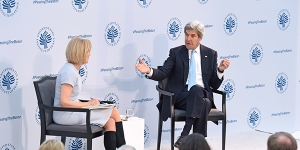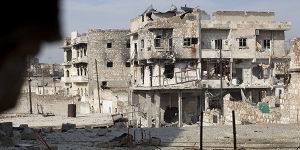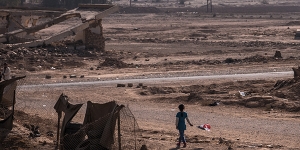Using the Arts to Promote Human Rights in Peacebuilding
Genesis at the Crossroads, a Chicago-based organization that uses the arts in peacebuilding, joins the U.S. Institute of Peace on April 22, 2015 to host an interactive panel discussion on building peace and human rights—and the role that the arts and artists can play.
Genesis at the Crossroads uses education and the arts — including innovative performances of music, dance and other genres — to creatively promote human rights, inter-ethnic dialogue and the building of peace. Join us April 22 for a conversation with academic, artistic and human-rights specialists about this intersection of human rights and the humanities. As part of a “new conversation for human rights in peacebuilding,” panelists will discuss how to mesh human rights concerns with the reconstruction of societies and governments following war or other violent conflict.





